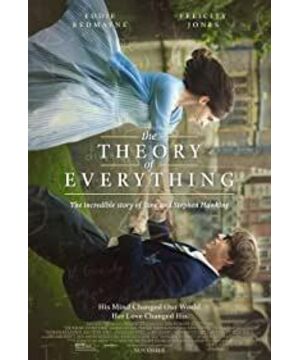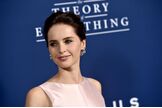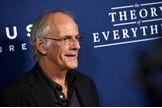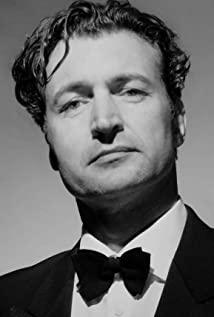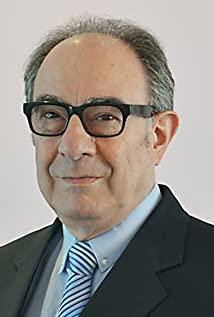There are many details in the movie that are very interesting, and the director's good use of the lens reflects this. Whether it’s Hawking pouring milk into the coffee on the train, the section of the stairs where Jane went to Cambridge to find Hawking, or Brian drawing with coffee in the bar, they all reflect Hawking’s in a very special way in this romance. theory. Warm colors are the color tone of this love biopic. The warm color makes this sad film a little warmer.
The minimalist soundtrack in the movie always appears very timely, promotes the plot, and represents the mood of the characters. For example, the period where Jane went to Jonathan after the divorce symbolized Jane's new life and Jane's rebirth.
Although the film is adapted from Jane’s biography, the film’s perspective is divided into two. The first half is from Hawking’s perspective, and the second half is from Jane’s perspective. This makes the thin script itself a little less tense, especially Jane’s perspective. Many loopholes.
The combination of Jane and Hawking is a wonderful thing in itself. The film tells about their differences many times, from liberal arts students and science students, English church members and atheists, and then to the Hawking family's table making things difficult, dancing or not dancing, to spend the weekend at Hawking's parents' house. Disagreement about the doctor at the time. At that time, I bought the original book to better understand the plot. The differences between the two are more than these. Hawking despises Jane’s friends and the ballet that Jane loves. Jane takes Hawking to see her mentor. Hawking criticizes Jane’s profession, including All kinds of after marriage. At the beginning of this relationship, Jane was tolerating Hawking, and in the second half, Hawking was tolerating Jane (in the movie). This also just reflects the love and tolerance of science.
[There are two anaphora in the movie, one is Jane said "your glasses are always dirty" when she was looking for Hawking, and Jane said "your glasses are always dirty" again when she went to see the queen later. Pen (but the second time it was imagined). It is also these two paragraphs that after the passage of time, even if two people are not together, the essence is still the same. Jane is still the same Jane, and so is Hawking. It's just that they finally chose a different life. In fact, this relationship cannot be said to be right and who is wrong. 】
【There is a section of "Daisy, Daisy, Give me your answer do" in the movie. This section is from "Daisy Bell". It is a love poem for a lover who falls in love at first sight, but at this time Jane and Hawking are already married, so no matter what No matter what, it will not be for Jane. In other words, it means that Hawking has started to cheat. He is in love with the passionate and beautiful Elaine. 】
For the characterization of Jane and Hawking, the director hopes to express the character's character in details. Hawking's arrogance is evident in three places in the film. Once he invited Jane to play, and again when he went to Cambridge to face the professors, there was a passage in the film "what's wrong with me, professor?" It was the scene where Hawking thanked Jane. This was another explanation of Hawking's arrogance. When Hawking thanked Jane, Jane was moved. It can be seen that Hawking is a person who rarely thanked him. But beyond that, there is no more obvious interpretation. And Jane's image portrayal is a little better than Hawking, at least it writes Jane's persistence, but it weakens the effect of faith on Jane. And Jane's portrayal is more focused on her love for hawking. For example, at the May dance, Jane told hawking the scientific theories she knew, and Jane discussed quantum theory and general relativity at the dinner table. She was willing to learn about areas she didn’t know, just because of hawking and the conversation with Frank. Talk to the doctor before tracheal surgery, etc. The sense of pride in Hawking's eyes at the dinner table and the great cooperation between the two are a powerful testimony of this relationship.
Although the characterization is relatively flat, the performances of actors Felicity Jones and Eddie Redmayne make up for this. There is no doubt that Eddie's performance is more difficult than Felicity. Felicity admits this. Whether it was the wanton publicity when studying for a PhD in Cambridge, or the performance after being diagnosed with ALS, it was very brilliant, so I won't say more. Therefore, I personally pay more attention to Felicity's performance. Jane is the core of this movie. Her faith and love support her to love Hawking and support Hawking, but she is consumed by life, and all the burdens make her breathless. Jane likes to travel very much, she pursues her studies, but she made concessions for Hawking, but she has her bottom line. "We are not a normal family." "your mother is angry with me." In this paragraph, there is Jane's collapse and Hawking's sadness. After all, love is no match for trivial life. It seems to be pulling too far. Felicity performed this character very well. Her performance was very hierarchical. Three performances touched me. One was sad when watching Hawking play, the other was a crash in the car, and the other was a break with Hawking. What impressed me about Eddie's performance was Hawking telling Jane that he could accept cheating, the struggle in the hospital when he had just finished the tracheal surgery, and the break with Jane. The difficulty of performing freckles is more physically reflected, while President Fei is psychologically. It has to be said that it is not easy for the actors.
Many people think that movies tend to be running accounts, but in fact, the movie has removed a lot of details. The part of running accounts lies in the transitional part of the two perspectives, which is the middle part. If the latter half of the movie adds more family perspectives (such as three children, In the original book, the children have a lot of pen and ink) instead of focusing on the emotional changes between the two, perhaps the movie will be fuller.
Some people think that the name of the movie "The Theory of Everything" is too big. In fact, the theory of everything the director wants to express is "love". Jane's love for Hawking, Hawking's love for Jane, Hawking's love for science, his love for Elaine, and Jane's love for ideals, his love for Johansson, and his love for children. Love can contain all things, including Jane's fascination with science, hawking finally recognized God in the brief history of time.
At the end of the movie, time turns around and everything freezes at the starting point of this relationship, just like Hawking's theory. If life is just as you see it at first, it may be the best interpretation of this relationship.
PS.
The two protagonists of the film have also made a lot of efforts for this performance. Before the filming, the two people had been collecting information and went to meet their respective roles. Freckles had to make-up, and they had to pouting in the middle. Mr. Fei For this role, three instructors were specially invited to learn how to dance, learn body, and learn Jane's way of speaking (the actor's own voice is not as thin as in the movie).
View more about The Theory of Everything reviews


